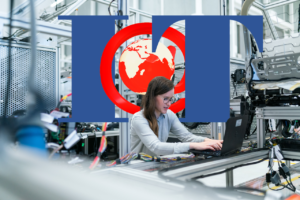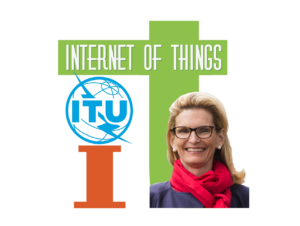In a recent post I wrote about Web 3.0 and in that blog, I mentioned Web 2.0. An article in the International Herald Tribune discussed the state of Web 2.0 in general, but specifically about one site that has taken advantage of it [“Del.cio.us, Joshua Schacter,” by Ian Katz, 4 November 2006].
Like several Web 2.0 success stories, Del.icio.us began life as the elegant solution to a problem encountered by its creator. Joshua Schachter was working as an analyst in a Wall Street bank and writing a blog in his spare time. He got sent so many web links that he created a database to keep them in, then a web page to access it. At first Schachter tagged all the links himself with the subjects they touched on, like a manic filing clerk. But when he allowed users of the site to tag their own links, Schachter began a trend that has become one of the central themes of the new web. Now his site allowed users to tap ‘the wisdom of the crowd’. Instead of simply using Del.icio.us as a place to keep a record of web pages you want to be able to find again, you could harness all the hard filing and bookmarking work of other Del.icio.us users.
Schacter, like many innovators, simply confirmed the old adage that “necessity is the mother of invention.” That, more than any overriding vision, is what really developed the World Wide Web into Web 2.0. Katz describes Web 2.0 like this:
It used to be that to build a product on the web took a lot of engineering time, a lot of hardware and expensive bandwidth. It took serious cash. Now a great deal of what is necessary is passion. Del.icio.us is a system for saving things you have seen on the internet, and sharing them with other people. We’ve gone from a world where things are chosen by peers of the publisher, peers of the writer … in the future everything will be selected by the peers of the consumer.
Whereas Web 3.0 will be technology driven to make surfing more effective and user friendly, Web 2.0 is peer driven, with people building on Web 1.0 to make its content more connected and more useful. Information sharing is not only necessary in the information age, its natural. People are naturally social animals even when occupying cyberspace. Web 2.0 takes advantage of that instinct.
In another past post, I wrote about the dangers of botnets. A presentation given by Jamais Cascio at this year’s Pop!Tech conference (and posted in John Peterson’s The Future newsletter), focuses on other similar dangers that will face individuals and corporations in the more distant future. He called his presentation: The Coming Apocalypse.
We are no more than 20 years away from the introduction of an utterly transformative technology: molecular manufacturing. This is the ability to create just about anything molecule-by-molecule, using millions of tiny nanodevices acting in concert inside of a “factory” not much bigger than a laser printer. In principle, you’ll be able to make a new toothbrush, laptop or even new nanofactory at home just as easily as you now burn a CD. Unfortunately, this could also lead to the end of civilization as we know it. If you’ve followed arguments about nanotechnology, you might be familiar with terms like “gray goo,” the result of armies of nanorobots converting everything in their path into more nanorobots. There’s also “green goo” — nanorobots that go after nature — and “red goo” — nanorobots that go after people. Scary stuff. Fortunately, it looks like these would be a lot harder to do and nowhere near as effective as feared. No, the real threat is more insidious, attacking us not by tearing apart our bodies, but by breaking down our spirits. I’m talking about Spam. Nanotech spam. Think of it as “pink goo.” Just about every digital technology able to carry a message has been turned into a vehicle for spam, because the cost of sending a million messages is little more than the cost of sending one. Ultra-efficient nanomanufacturing systems will be no exception. Some of the spam will be subtle — nanofactories that insist on adding marketing slogans on everything they print out (“Made by the StuffStation 5000! StuffStation — For When You Want More Stuff”). Some of the spam will be a bit more brute force — super cheap mobile devices made to put advertisements everywhere, even by shouting them at you. Imagine being unable to escape lurid pitches for herbal viagra, the latest holiday gift idea, or fraudulent get-rich-quick schemes because they’re literally coming from all around you. It gets worse when you add software viruses and the like to the mix. It’s not just spammer nanofactories making the spambots, but your own desktop 3D printer. Or, worse, anything that your home nanofactory produces being made with a hacked-in vulnerability to spam. There are ways we can avoid this nightmare, if we’re lucky. It could be that the introduction of exponential manufacturing technologies so undermines traditional businesses that we have a global economic collapse, and spam disappears with all other advertising because nobody can buy anything. It could be that molecular systems make total global surveillance possible, and we willingly build a totalitarian police state to hunt down spammers. Or global warming could do us all in. If we’re really lucky, we’ll end up in a world that parallels today’s: cat and mouse games between spammers and security; active spam filters (in this case, “filter” robots hunting down spambots on the street); open source advocates offering much more secure systems that almost nobody actually uses; and a wearying, demoralizing sense of the inevitability of it all.
I don’t raise these problems to frighten people, but because they are the types of challenges that the Institute for Advanced Technologies in Global Resilience was established to address. If organizations are going to survive and thrive they must become resilient to emerging challenges. It’s never too soon to start thinking about such challenges.




